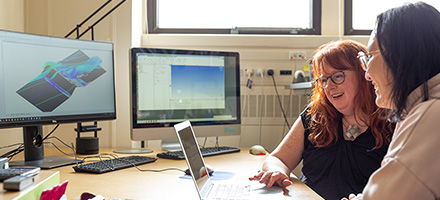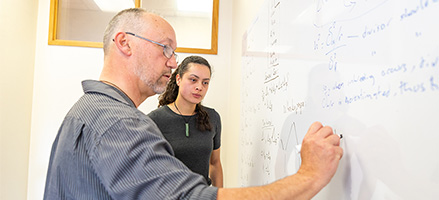Study Mathematics and Statistics at Otago
Understand the fundamentals of mathematics and statistics and solve real world problems
Mathematics and statistics underpin virtually all aspects of modern life, with applications across the fields of sciences, technology and business. Mathematics and statistics teach analytical reasoning and logical thinking that make it possible to understand and solve all manner of quantitative problems across a wide range of career sectors.
Explore what makes Science at Otago so special
It's not just our people – the experts in their fields and passionate students – but also the places we teach and learn: Otago Harbour, Fiordland, Stewart Island, Antarctica and the Pacific that mean our students leave here with highly sought-after skills and experiences.
Our community engagement
The Department also maintains important links with schools through two competitions: Problem Challenge and the Junior Mathematics Competition, run by Departmental staff, and by providing a comprehensive series of Statistics video presentations aimed at supporting the New Zealand Statistics curriculum.
Find out how your school can take part in our competitions and access our video series:



